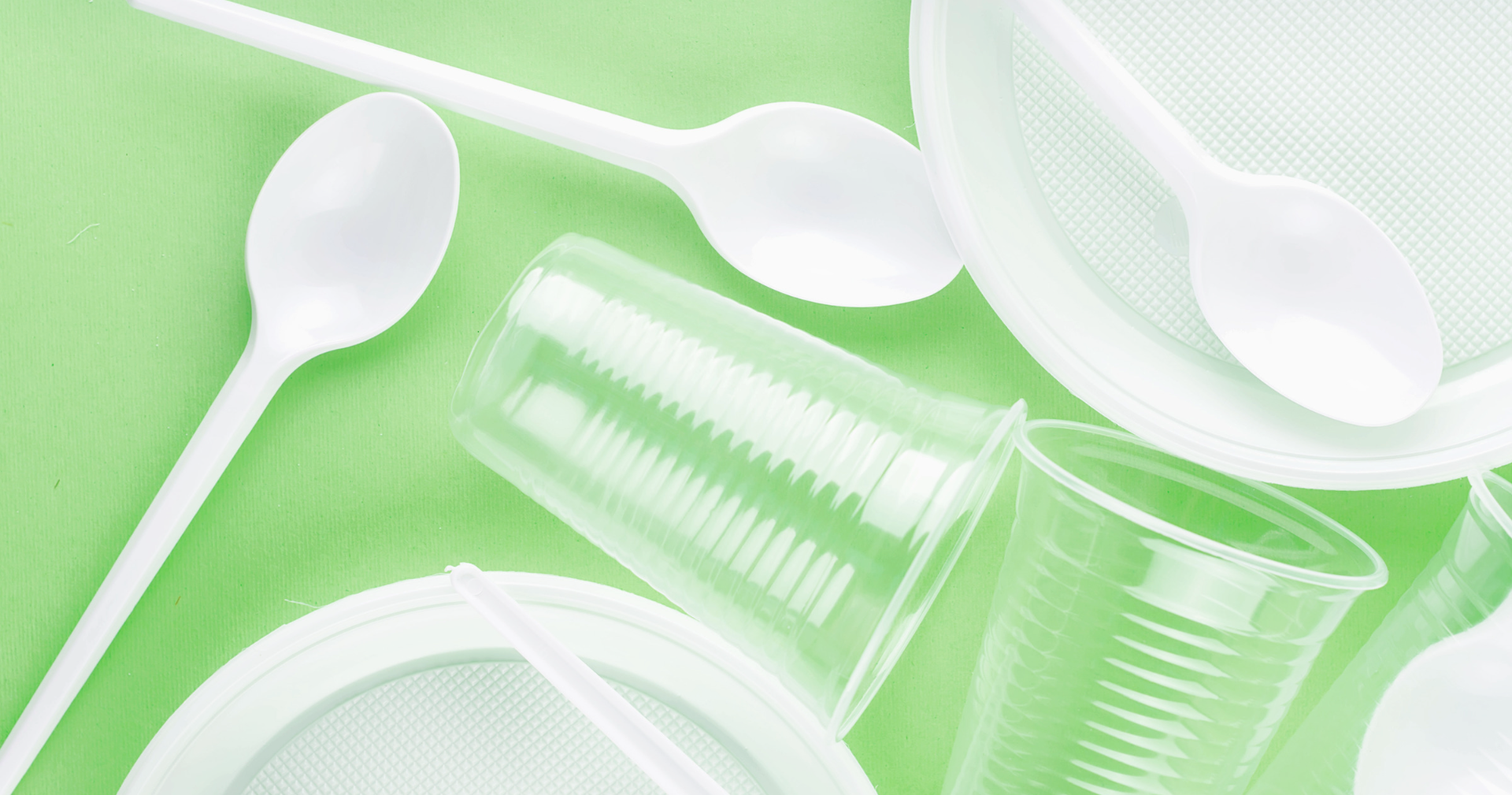
The Plastic-Free Path
How Food and Drink Businesses Can Benefit from a Sustainable Future
From the packaging of our food and drinks to disposable razors and cotton swabs, single-use plastics have become a ubiquitous part of our daily lives, but at what cost to our planet? The UK’s food and drink industry, in particular, has come under scrutiny for its heavy reliance on single-use plastics, such as straws, cutlery, packaging, and cups. It is a major contributor to the increasing levels of plastic waste in the country. In 2021, the UK produced
2.5 million tonnes of plastic waste - that’s enough to fill up almost 800 Olympic-sized swimming pools - and a significant portion of this waste comes from the food and drinks industry. Over
7 billion single-use plastic drinks bottles are used in the UK every year, and less than half of these are currently being recycled. And this is just the tip of the iceberg when it comes to the impact that single-use plastics are having on the environment.
To take a step back, ‘single-use plastics’ are products made of plastic that are designed to be used only once and then thrown away. This category of plastics includes a wide range of products, from straws and cutlery to plastic bags and beverage containers. They are often made from low-density polyethylene (LDPE), polyethylene (HDPE), or polypropylene (PP). Single-use plastics are popular within the food and drink industry because they are lightweight and easy to transport, which helps to reduce shipping costs. They also take up less space in landfills compared to other waste products. Additionally, single-use plastics are low cost, making them a popular choice for many businesses, especially smaller or budget-conscious operations. They are also hygienic, prevent cross-contamination and extend shelf life.
The advantages of using single-use plastics for food and drink businesses are clear. But despite their advantages, the environmental impact of these products is a major concern that cannot be overlooked. These disposable items are made from petroleum, a non-renewable resource, and they contribute to climate change through the release of greenhouse gases during production and disposal. Plastic waste is particularly problematic because it can take hundreds of years to decompose and contributes to the pollution of our oceans and landscapes. It also poses a threat to wildlife, as animals become entangled in plastic bags and packaging or mistake it for food. The consequences of plastic pollution are not just limited to the environment, they also have significant health implications for humans, as toxic chemicals can seep into soil and water sources.
In light of these environmental and health concerns, the UK government took decisive action to reduce plastic waste by announcing a ban on single-use plastics from October 2023. The ban will cover items such as plastic straws, stirrers, cotton buds, cutlery, and balloon sticks. The government hopes to encourage businesses and citizens to adopt sustainable practices and reduce their reliance on single-use plastics. The ban is also part of a broader effort to tackle plastic pollution and shift towards a more sustainable future. The government has said that it is committed to eliminating all avoidable plastic waste by the end of 2042 [ref]. One of the first high-profile steps on that journey came in 2015 when the government introduced a tax on single-use plastic bags, extending it to smaller retailers in 2021.
This latest ban will not only reduce the amount of plastic waste and promote sustainability in the food and drink industry, it also aims to drive innovation by encouraging businesses to find more sustainable alternatives to single-use plastics. By taking a stand against single-use plastics, the UK is following others such as Scotland, Canada and the EU in sending a message that it is time to take the health of our planet seriously.
As I mentioned before, single-use plastics have been widely used in the food and drink industry due to their convenience, cost-effectiveness, and hygienic benefits. However, as consumers and business owners become more environmentally conscious there is a growing need for sustainable alternatives.
While the upcoming ban does present a significant challenge to the industry, marking a major shift in the way businesses operate, it also offers several potential benefits and provides an opportunity to adapt and improve your business’s footprint.
Alternatives to Single-Use Plastics
There are several alternatives to single-use plastics that can help food and drink companies reduce their carbon footprint, each with their own advantages and disadvantages. These options range from compostable and biodegradable materials, to reusable and refillable options. Here is a rundown of some of the biggest contenders.
Reusable Plastics - Reusable plastics are a cost-effective alternative to single-use plastics. They can be used multiple times, reducing the need for frequent replacements, and are also durable and long-lasting. However, they require proper cleaning and maintenance which can be time-consuming and expensive. Additionally, reusable plastics can also pose a risk to public health if not cleaned properly.
Compostable Plastics - Compostable plastics, such as bioplastics made from cornstarch, are biodegradable plastics that can be broken down into organic matter through bacteria and other microorganisms. They are an environmentally friendly alternative to single-use plastics and can be used for the same applications, such as food packaging and disposable tableware. On the downside, compostable plastics are more expensive than single-use plastics and only decompose in industrial composting facilities which may not be readily available in all areas.
Paper and Cardboard - Paper and cardboard are traditional alternatives to single-use plastics. They are biodegradable, renewable, and made from natural resources, making them an environmentally friendly option. They can be used for packaging and tableware, but are often more expensive and less durable than plastic alternatives. Additionally, paper and cardboard can be less practical for some uses, such as hot or wet food and drinks, due to their tendency to soak or leak.
Glass and Metal - Glass and metal are long-lasting and reusable alternatives to single-use plastics. They are also environmentally friendly, as they can be recycled repeatedly without losing their quality. However, they can be more expensive than plastic alternatives and are also heavier and more fragile, making them less practical for some applications, such as food and drink containers for on-the-go consumption.
Refillable Options
- Refillable options, such as condiment dispensers and bulk food dispensers, are a way to reduce packaging waste while still providing consumers with the convenience of pre-packaged goods. Some businesses are put off by the increase in initial costs, but over time the cost savings from not having to purchase single-use items can offset this expense. There can also be hygiene concerns, especially when they are used in public settings.
In short, food and drink businesses have several options when it comes to alternatives to single-use plastics, each with its own pros and cons. As with many of the choices you make for your business, the most effective and sustainable option will depend on the specific needs you have. It is important to carefully consider the practicality and environmental impact when making a decision.
The industry has a crucial role to play in shaping a sustainable future.
Conclusion
This ban is a significant step forward for both the food and drink industry and the environment. The industry has a crucial role to play in shaping a sustainable future from ditching single use plastic to improving practices in other areas of the supply chain.
Experts are aware that this ban will have a significant impact on the industry, but by embracing change businesses will be able to not only meet their environmental obligations but gain a competitive advantage and be part of a positive change for the future.
Not sure how to prepare for this ban? This article offers an outline of a few of the range of alternatives available to you but innovations are happening every day. We recognise that it's important to choose the most sustainable alternative that suits the needs of your business, the environment, and your customers equally. Our platform is already home to a number of products that could be the right fit,
head over to our platform to get started exploring.
It's time for the food and drink industry to join the plastic-free path and take advantage of the benefits that come with a sustainable future.
Dr Mendy Mombeshora is the Chief Operating Officer of Greener

